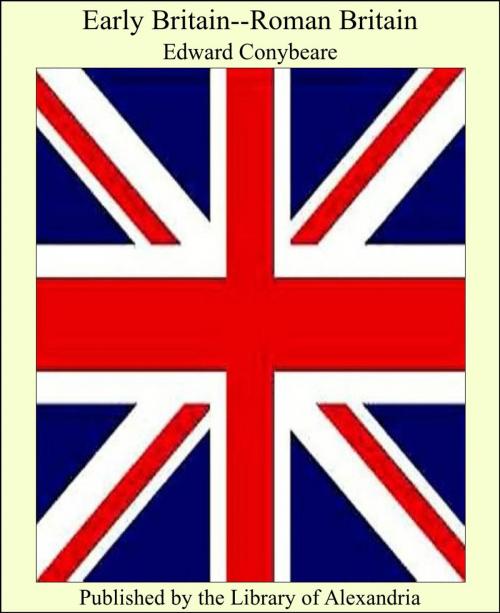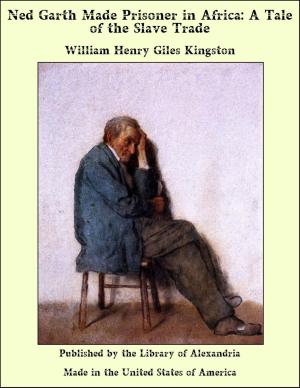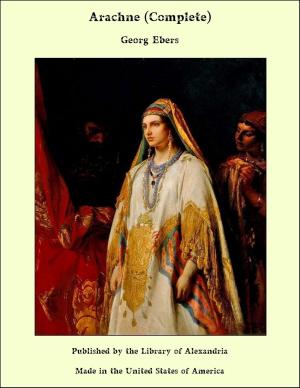Early Britain--Roman Britain
Nonfiction, Religion & Spirituality, New Age, History, Fiction & Literature| Author: | Edward Conybeare | ISBN: | 9781465533777 |
| Publisher: | Library of Alexandria | Publication: | March 8, 2015 |
| Imprint: | Language: | English |
| Author: | Edward Conybeare |
| ISBN: | 9781465533777 |
| Publisher: | Library of Alexandria |
| Publication: | March 8, 2015 |
| Imprint: | |
| Language: | English |
A complete Bibliography of Roman Britain would be wholly beyond the scope of the present work. Much of the most valuable material, indeed, has never been published in book form, and must be sought out in the articles of the ‘Antiquary,’ ‘Hermes,’ etc., and the reports of the many local Archaeological Societies. All that is here attempted is to indicate some of the more valuable of the many scores of sources to which my pages are indebted. To begin with the ancient authorities. These range through upwards of a thousand years; from Herodotus in the 5th century before Christ, to Gildas in the 6th century after. From about 100 A.D. onwards we find that almost every known classical authority makes more or less mention of Britain. A list of over a hundred such authors is given in the ‘Monumenta Historica Britannica’; and upwards of fifty are quoted in this present work. Historians, poets, geographers, naturalists, statesmen, ecclesiastics, all give touches which help out our delineation of Roman Britain. Amongst the historians the most important are—Caesar, who tells his own tale; Tacitus, to whom we owe our main knowledge of the Conquest, with the later stages of which he was contemporary; Dion Cassius, who wrote his history in the next century, the 2nd A.D.;[3] the various Imperial biographers of the 3rd century; the Imperial panegyrists of the 4th, along with Ammianus Marcellinus, who towards the close of that century connects and supplements their stories; Claudian, the poet-historian of the 5th century, whose verses throw a lurid gleam on his own disastrous age, when Roman authority in Britain was at its last gasp; and finally the British writers, Nennius and Gildas, whose “monotonous plaint” shows that authority dead and gone, with the first stirring of our new national life already quickening amid the decay. Of geographical and general information we gain most from Strabo, in the Augustan age, who tells what earlier and greater geographers than himself had already discovered about our island; Pliny the Elder, who, in the next century, found the ethnology and botany of Britain so valuable for his ‘Natural History’; Ptolemy, a generation later yet, who includes an elaborate survey of our island in his stupendous Atlas (as it would now be called) of the world;[4] and the unknown compilers of the ‘Itinerary,’ the ‘Notitia,’ and the ‘Ravenna Geography.’ To these must be added the epigrammatist Martial, who lived at the time of the Conquest, and whose references to British matters throw a precious light on the social connection between Britain and Rome which aids us to trace something of the earliest dawn of Christianity in our land.[5
A complete Bibliography of Roman Britain would be wholly beyond the scope of the present work. Much of the most valuable material, indeed, has never been published in book form, and must be sought out in the articles of the ‘Antiquary,’ ‘Hermes,’ etc., and the reports of the many local Archaeological Societies. All that is here attempted is to indicate some of the more valuable of the many scores of sources to which my pages are indebted. To begin with the ancient authorities. These range through upwards of a thousand years; from Herodotus in the 5th century before Christ, to Gildas in the 6th century after. From about 100 A.D. onwards we find that almost every known classical authority makes more or less mention of Britain. A list of over a hundred such authors is given in the ‘Monumenta Historica Britannica’; and upwards of fifty are quoted in this present work. Historians, poets, geographers, naturalists, statesmen, ecclesiastics, all give touches which help out our delineation of Roman Britain. Amongst the historians the most important are—Caesar, who tells his own tale; Tacitus, to whom we owe our main knowledge of the Conquest, with the later stages of which he was contemporary; Dion Cassius, who wrote his history in the next century, the 2nd A.D.;[3] the various Imperial biographers of the 3rd century; the Imperial panegyrists of the 4th, along with Ammianus Marcellinus, who towards the close of that century connects and supplements their stories; Claudian, the poet-historian of the 5th century, whose verses throw a lurid gleam on his own disastrous age, when Roman authority in Britain was at its last gasp; and finally the British writers, Nennius and Gildas, whose “monotonous plaint” shows that authority dead and gone, with the first stirring of our new national life already quickening amid the decay. Of geographical and general information we gain most from Strabo, in the Augustan age, who tells what earlier and greater geographers than himself had already discovered about our island; Pliny the Elder, who, in the next century, found the ethnology and botany of Britain so valuable for his ‘Natural History’; Ptolemy, a generation later yet, who includes an elaborate survey of our island in his stupendous Atlas (as it would now be called) of the world;[4] and the unknown compilers of the ‘Itinerary,’ the ‘Notitia,’ and the ‘Ravenna Geography.’ To these must be added the epigrammatist Martial, who lived at the time of the Conquest, and whose references to British matters throw a precious light on the social connection between Britain and Rome which aids us to trace something of the earliest dawn of Christianity in our land.[5















